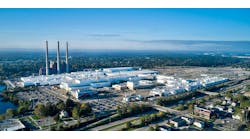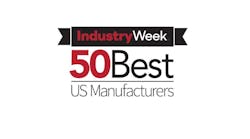IT spending continues to accelerate toward the cloud. A recent study by Gartner indicates that more than half of Enterprise IT spending will shift to the cloud in 2025.
This shift holds particularly true in manufacturing sectors, where staying abreast of evolving technology is pivotal. Failing to do so may result in losing ground to competitors.
This article explains the key advantages of Cloud ERP and how it specifically benefits Manufacturing Enterprises.
The Accelerating Trend to Cloud ERP
The shift to cloud ERP is a prominent business trend across all industries. According to a Panorama Consulting study conducted in 2017, most companies were still using on-premise ERP systems. However, by 2022, Gartner reported the majority were adopting cloud ERP (65%).
The overall trend is for businesses with on-premises ERP software to upgrade to a new cloud-based ERP system, particularly for those in manufacturing. For those companies that have not yet upgraded their system to the cloud, it’s highly likely they will make this change soon to stay competitive.
When deciding between cloud ERP and On-Premises ERP, many factors must be considered, such as your budget, the need for customization, the level of remote access required, and your need to scale over the next five years. However, Cloud ERP deployments are the clear winning manufacturing strategy for several reasons, and the trend will steeply increase in the years ahead.
Cloud ERP Benefits and Functionality
Cloud ERP is a scalable, cost-effective solution for manufacturing businesses. It offers unparalleled remote access to critical data and tools. Cloud ERP allows companies to scale their operations up or down based on demand without significant upfront investments in hardware and IT infrastructure.
This flexibility leads to cost savings and improved agility. Cloud ERP facilitates seamless teamwork from any location, including mobile devices, and guarantees data security through robust measures implemented by cloud providers.
Key Benefits of Cloud ERP
- Efficiency and Simplification: By adopting cloud technology, manufacturers can significantly improve operations and streamline processes throughout the production cycle.
- Automatic Updates and Collaboration: Teams enjoy the advantages of automatic software updates and enhanced collaboration features, which enable smooth, uninterrupted work from anywhere.
- Data Security: Cloud ERP's stringent security protocols ensure that sensitive business data is always protected against unauthorized access.
- Integrates with Other Systems: Cloud ERP often includes or integrates with other software systems, such as CRM, HR, and finance tools, providing a unified view of business operations and enabling data-driven decision-making.
- Easy Customization and Configuration: Cloud ERP solutions can be customized and configured to meet the specific needs of manufacturing businesses, allowing them to tailor the software to their unique requirements.
Comprehensive Functionalities for Manufacturing
Cloud ERP offers a wide range of functionalities tailored to the needs of manufacturing businesses.
Production management features include production planning and control, which optimizes scheduling, monitors shop floor activities, manages BOMs, and enforces quality control. Master production scheduling ensures efficient resource allocation and timely order fulfillment, while routing management optimizes production flow and minimizes bottlenecks. Quality management tools facilitate inspection and testing to ensure products meet required standards.
Inventory and materials management capabilities provide real-time visibility into inventory levels, helping to prevent shortages and reduce costs. Advanced functions like MRP determine material needs based on demand forecasts and production plans, while lot traceability enables tracking materials and products for quality control and regulatory compliance. Just-in-time inventory management supports lean manufacturing practices by optimizing inventory levels and minimizing working capital costs.
Supply chain integration is another crucial aspect of cloud ERP for manufacturers. The system enhances supplier collaboration and facilitates integrated planning, procurement, and transportation management. Demand forecasting capabilities anticipate customer needs and optimize supply chain planning while streamlined purchasing and procurement processes simplify the acquisition of goods and services. Warehouse management tools ensure efficient receiving, putaway, picking, packing, and shipping operations.
Compliance and analytics are critical considerations for manufacturers. Cloud ERP helps comply with industry-specific regulations and standards, such as ISO, FDA, or GMP, by providing built-in quality control, traceability, and reporting features. Real-time data access and analytics capabilities enable manufacturers to monitor KPIs, identify trends, and make informed decisions quickly.
A Complete Digital Ecosystem
A well-rounded suite of financials, human resources, business intelligence, cross-functional ERP components, and robust support services equips manufacturers with the tools they need to operate and innovate.
Cloud ERP's mobility empowers manufacturers by providing real-time access to critical business functions on mobile devices like smartphones and tablets. This enables managers and employees to monitor operations, make informed decisions, and collaborate seamlessly, regardless of location. Mobile ERP enhances responsiveness and facilitates agility in today's fast-paced and globalized market, allowing manufacturers to stay competitive.
Additional Cloud ERP Considerations
Beyond assessing costs, several other factors must be considered when determining which cloud ERP systems are suitable for manufacturing operations.
These considerations include:
- Customization and Flexibility: Evaluate whether the software can flexibly adapt to your industry's unique requirements and processes. Determine if extensive customization is necessary and whether it incurs additional expenses.
- Scalability: Assess whether the ERP system can seamlessly accommodate your business's evolving needs, including increased user counts, transaction volumes, and functional demands. Consider how scaling up might impact the overall cost structure.
- Integration: Ensure compatibility by examining whether the cloud ERP can integrate smoothly with your existing systems and tools. Seamless integration fosters streamlined workflows and minimizes disruptions to operations.
- Security and Compliance: Prioritize security measures that meet and surpass industry standards and regulatory compliance requirements. Emphasize solutions that offer robust safeguards to protect sensitive data and uphold regulatory mandates.
- Vendor Reputation and Support: Conduct thorough research into the ERP vendor's reputation and the quality of their customer support services. Seek assurances of responsiveness and reliability, particularly during critical moments. Look for evidence of satisfied clientele within your industry and sector.
- Industry-Specific Needs: Different industries have distinct operational requirements and regulatory compliance standards. When evaluating cloud ERP options, it's essential to prioritize solutions tailored to your industry's specific needs. For example, process manufacturers may require features like Lot Tracing and Formula Management. Many cloud systems are specifically designed to work with industry-unique production processes across the manufacturing spectrum.
- Company Size and Complexity: Your organization's size and complexity play a significant role in determining the most suitable cloud ERP solution. Small and medium-sized enterprises (SMEs) may prioritize cost-effectiveness, ease of implementation, and scalability when selecting an ERP system. In contrast, large enterprises with complex operations may prioritize advanced features, customization options, and robust support services. Considering your company's size and complexity ensures the ERP solution aligns with your current needs while accommodating future growth and expansion.
Cloud ERP Customization and Integration
Cloud ERP systems typically present customization features tailored to your unique business processes and demands. Many vendors furnish APIs (Application Programming Interfaces) and supplementary tools facilitating seamless integration with third-party applications like CRM, HR, or e-commerce platforms such as Shopify.
Nonetheless, discussing your specific customization and integration requirements with prospective vendors or consultants is critical to gauge their proficiency in addressing these tasks.
Excessive customization may occasionally complicate updates and maintenance procedures, potentially leading to escalated costs.
Therefore, striking a harmonious balance between tailoring the software to your needs and adjusting your processes to align with the system's functionalities is advisable. A well-suited system should necessitate minimal extensive customization and ideally align closely with your operational requirements.
Future Manufacturing Potential with Cloud ERP
Integrating advanced technologies with cloud-based ERP systems will continue to improve operations as manufacturing evolves. Artificial intelligence, machine learning, and the Internet of Things (IoT) deployed through the cloud continue to help manufacturers optimize production, improve quality control, and make informed decisions based on data.
Future cloud ERP systems will be more scalable, flexible, and accessible to meet the changing needs of manufacturers in a digital world. The cloud enables seamless deployment and integration of these technologies, allowing companies to adapt quickly to innovations and scale as needed.
Manufacturers must embrace modern cloud ERP solutions that integrate advanced technologies to stay ahead. The future of manufacturing depends on the combination of cloud and these powerful tools, enabling companies to succeed in a connected, data-driven industry.
The future of manufacturing hinges on adopting solutions that seamlessly integrate emerging technologies. By leveraging the cloud's capabilities for real-time data access, collaboration, and automated updates, manufacturers can position themselves to thrive in a connected, data-driven industry.
Embracing cloud ERP represents not just a technological upgrade but a strategic imperative for manufacturers seeking to remain competitive and resilient in the years to come.
Sponsored By:




